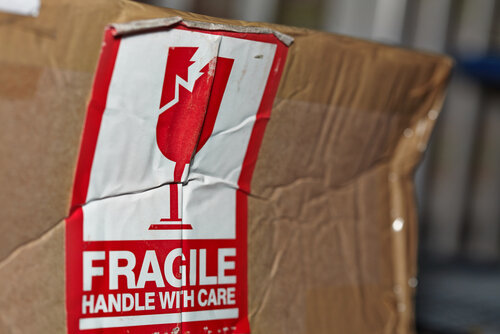
Introduction to Freight Forwarding Insurance
Freight forwarding insurance is a critical component in the logistics industry, safeguarding businesses from potential losses due to damaged or lost shipments. It’s a safety net that keeps the wheels of commerce turning smoothly, even in the face of unpredictability. At Moving Solutions, we understand the critical role of freight insurance in the logistics industry. With over 10 years of industry experience, we know the importance of proper freight forwarding insurance.
Why Freight Forwarding Insurance is Crucial
Imagine shipping a valuable cargo halfway across the world, only to find it damaged on arrival. Without insurance, your business would bear the full brunt of this loss. Freight insurance acts as a shield, absorbing these financial shocks and providing peace of mind.
Types of Freight Forwarding Insurance
All Risk Insurance
As the name suggests, this covers almost all risks, including damage from loading/unloading, weather events, and even theft. It’s the broadest coverage available, but it’s also the most expensive.
Total Loss Insurance
This insurance only covers scenarios where the entire cargo is lost, such as in a ship sinking. It’s cheaper but offers less coverage.
Specific Perils Insurance
This type covers only specific risks outlined in the policy, such as fire or explosion. It’s a middle-ground option between all risk and total loss insurance.
How to Choose the Right Freight Forwarding Insurance
Understanding your Risk
Every business is unique, and so are its risks. It’s crucial to understand the specific dangers your cargo faces during transit. Consider factors such as the cargo’s value, its susceptibility to damage, and the safety of the shipping route.
Comparing Insurance Providers
Not all insurance providers are created equal. Compare their offerings, premiums, claim settlement ratios, and customer reviews. Don’t just go for the cheapest option – look for the one that offers the best value.
Common Mistakes to Avoid
Underinsuring Your Cargo
Just like in Goldilocks, the insurance coverage should be “just right”. Not too little that it leaves you exposed, not too much that it eats into your profit margins.
Ignoring the Fine Print
Insurance policies can be complex, but it’s essential to understand what’s covered and what’s not. Don’t hesitate to ask your insurance provider to clarify any doubts you have.
Tips for Filing a Successful Claim
Documentation
A well-documented claim is a successful claim. Keep copies of all relevant documents, including the shipping invoice, bill of lading, and any correspondence with the carrier.
Timely Reporting
In the event of a loss, report it to your insurance provider as soon as possible. Delaying this can complicate the claim process, or worse, lead to claim denial.
Conclusion
Navigating the world of freight forwarding insurance might seem overwhelming at first. However, with the right knowledge and understanding, you can effectively protect your shipments from potential risks. By recognising the importance of insurance, identifying the type that suits your needs, avoiding common pitfalls, and knowing how to file a claim successfully, you’ve mastered the crucial elements of insurance. It’s all about striking the right balance between cost and coverage, while always keeping the unique needs of your business in mind. Remember, insurance isn’t just an expense – it’s an investment in the stability and sustainability of your business.
Frequently Asked Questions
-
What is the best type of freight forwarding insurance?
- There is no one-size-fits-all answer. The best type of insurance depends on your cargo, its value, the risks it faces during transit, and your financial capacity.
-
How do I file a claim for my freight forwarding insurance?
- Start by notifying your insurance provider as soon as possible. Then, gather and submit all relevant documents, like the shipping invoice, bill of lading, and any communication with the carrier.
-
What are the common exclusions in freight forwarding insurance?
- Common exclusions include losses due to delay, ordinary leakage, and inherent vice (internal decay or degradation). Always read your policy carefully to understand these exclusions.
-
Can I ship goods without freight forwarding insurance?
- While you can ship goods without insurance, it’s highly risky. If the cargo gets damaged or lost, you will bear the full financial loss.
-
Why is my freight forwarding insurance premium so high?
- Premiums depend on many factors, including the value of your cargo, the risks during transit, and your chosen coverage level. If your premium is high, it’s likely that your shipment is considered high-risk.
Call Moving Solutions today at 1300 972 040.
